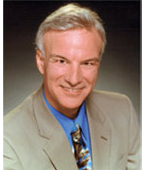
Host: Anti-Aging Psychologist Dr. Michael Brickey
Guest: Annette Simmons
Broadcast and podcast on webtalkradio.net. The podcast is also on the links below

Dr. Mehmet Oz says “by the time we are 50, two-thirds of how we age will be determined by lifestyle.” The goal Ageless Lifestyles® is to help you live a longer, healthier, happier life. One of the biggest challenges with aging is reinventing a sense of purpose and contribution as we age. I know it may sound strange, but I believe becoming a better storyteller is very helpful with longevity, health, and happiness. Let me count the ways:
- By helping you be more successful at communicating your ideas and influencing people, you are better able to follow your purpose and succeed at your goals.
- Becoming a good storyteller promotes you to a family matriarch or patriarch, championing the family traditions and values you love in a way that captures the minds and hearts of family members of all ages.
- Storytelling develops a sense of confidence and efficacy
- It’s fun.
So what did Annette Simons teach us about storytelling? It is easy to think, I would like to be a good storyteller, but I don’t have any stories. She points out we have all had life crises, challenges and transitions, and thus we all have stories. How to find them? She breaks it six kinds of stories:
- Who am I?
- Why am I here?
- Teaching
- Vision
- Values in action
- I know what you are thinking
While some storytellers have different classifications, Annette Simmons’ system in especially well suited for everyday living, thinking about aging, as well as business. Let’s focus on aging. The who am I? stories are especially important as we update our identity when we experience life transitions and health challenges. It can vary from the somewhat negative why me? to the more positive what now? Life transitions and challenges also prompt why am I here? stories to update our purpose. Teaching stories are especially important for how we view aging. An example is the story I told about the 94-year-old man who believed he was 64. Vision stories look at the big picture and purpose. Values in action stories are particular important in aging in making sure people don’t write off seniors as obsolete or irrelevant but view seniors as having a lot to contribute. Finally, I know what you are thinking stories are marvelous for acknowledging skepticism and differences, starting where the listener is, and leading them to considering possibilities that they usually would rule out.
So how do you become a better storyteller? The starting point is believing you have stories to tell and looking for them. I find it helpful to write stories down shortly after they happen as it is easy to forget the details that add to the richness of a story. Annette Simmons Whoever Tells The Best Story Wins is very helpful in identifying and generating stories. She encourages us to tell them to supportive audiences who give feedback on what they liked. Then it is a question of practice, practice, practice—and carefully watching the responses you get.
Ms Simmons’ website is www.groupprocessconsulting.com. Dr. Brickey’s other websites are www.DrBrickey.com and www.Anti-Aging-Speaker.com.


















